Disrupting for Good: AI, ...
Online Conference
28 Jan 2026 / 29 Jan 2026 read more


Dr. Astrid Kusumowidagdo
Vice Rector of Entrepreneurship, Academic and Research, Universitas Ciputra, Indonesia.

Enrico
Lecturer of fashion product design, Universitas Ciputra, Indonesia
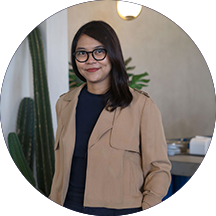
Rahayu Budhi Handayani
Lecturer of fashion product design, Universitas Ciputra, Indonesia
Conference Coordinator
[email protected]
(+20) 3 5763827 | (+20) 3 5763828
Whatsapp: (+20)1000028021
Subscribe to our newsletter
The rise of creative industries in the world is a phenomenon that continues to shape the global landscape. With each passing day, these industries experience mounting growth, captivating people’s attention, and pushing boundaries like never before. This rise can be attributed to the increasing demand for innovative and engaging content across various platforms. From film and television to music and design, creative industries are driving economic growth, promoting cultural diversity, and providing countless opportunities for talented individuals to show their skills. As technology advances and globalization expands, the creative industries are set to bloom even further inspiring generations to come.
Ensuring sustainability in creative industries is of massive importance in a rapidly evolving world. As these industries continue to prosper, it becomes crucial to prioritize environmental control, social responsibility, and economic practicality. By adopting sustainable practices, such as reducing carbon footprints, embracing renewable energy sources, and minimizing waste, creative industries can contribute to a greener future. Promoting diversity, inclusivity, and fair labor practices within the industry can maintain social sustainability. In addition to that, by investing in long-term growth strategies and ethical business models, creative industries can secure their economic sustainability, benefiting both the industry and society as a whole. To protect and ensure the longevity and impact of creative industries, sustainability must remain the main concern.
The 4th edition of the “Sustainability in Creative Industries” conference will be held as a hybrid event in Indonesia, IEREK is planning to continue the conversation regarding the idea of ensuring sustainability in several fields of creative industries. The conference will discuss multiple industries varying between old and relatively new, and different methods to ensure sustainability in these industries including materials needed to carry out these industries and different strategies.
Conference Scope
The "Sustainability in Creative Industries" conference aims to bring together professionals, experts, and enthusiasts from various creative fields to explore and address the intersection of sustainability and creativity. The conference will provide a platform for in-depth discussions, knowledge sharing, and collaborative opportunities to promote sustainable practices within the creative industries. Attendees will discuss a diverse range of topics including eco-friendly production methods, ethical sourcing, waste reduction, renewable energy, and the impact of creative industries on the world. The conference will allow participants to gain insights, exchange ideas, and form partnerships to encourage sustainable practices in their fields.
Statement of Purpose
The 4th edition of the conference aims to inspire, educate, and empower attendees to embrace sustainability as a core value in creative industries and contribute to a more sustainable future for all. The "Sustainability in Creative Industries" conference’s main purpose is to cultivate a collective understanding and commitment towards integrating sustainability into the depth of creative industries. Through this conference, conversations are made easier, best practices are shared, and collaboration among professionals, artists, and policymakers is encouraged. The purpose is to inspire and empower participants to rethink traditional practices, embrace innovative solutions, and take accountability for the environmental, social, and economic impacts of their creative pursuits. By exploring the vital connection between sustainability and creativity, the aim is to quicken positive change, promote responsible consumption, and pave the way for a more sustainable future where creativity goes hand in hand with the planet and society.
1.2 Biophilic design: Integrating nature into urban spaces.
1.3 Sustainable materials in construction and architecture.
1.4 Adaptive reuse of old buildings for sustainability.
1.5 Smart cities and sustainable urban planning.
1.6 Carbon-neutral architectural practices.
1.7 The role of technology in sustainable architecture.
1.8 Recycled and alternative materials in brick and ceramics manufacturing.
1.9 Case studies of iconic sustainable buildings.
2.1 Ethical considerations in repatriating cultural artifacts.
2.2 The role of cultural heritage in promoting sustainability.
2.3 Energy-efficient lighting and climate control in museums.
2.4 The impact of tourism on cultural heritage sites.
2.5 Digital preservation of cultural artifacts.
2.6 Sustainable funding models for cultural institutions.
2.7 The role of libraries in promoting environmental awareness.
2.8 The future of virtual museums and exhibitions.
2.9 Case studies of sustainable heritage conservation projects.
3.1 The relationship between AI, human creativity, and sustainable development.
3.2 The Role of AI in Sustainable Innovation Across Creative Industries.
3.3 Ethical Implications of AI-Generated Creativity: Balancing Sustainability and Automation.
3.4 The Role of AI in Enhancing Creative Expression.
3.5 Understanding AI’s Cognitive Approach to Art.
3.6 Intellectual Property Challenges in AI-Generated Creative Works.
3.7 Legal Issues in AI-Generated Content Ownership.
3.8 The Impact of AI on Artistic Integrity.
3.9 Case Studies on AI-Assisted Creativity in Various Industries.
4.1 Circular design principles in product development.
4.2 The role of 3D printing in sustainable design.
4.3 Eco-friendly materials in graphic design (e.g., recycled paper).
4.4 The impact of minimalism in sustainable design.
4.5 Sustainable UX/UI design for digital products.
4.6 The role of design thinking in solving sustainability challenges.
4.7 The future of biodegradable materials in design.
4.8 The role of certifications (e.g., Cradle to Cradle) in design.
4.9 Case studies of sustainable design innovations.
5.1 Green coding practices for energy-efficient software.
5.2 Gamification for environmental education and behavior change.
5.3 Sustainable practices in app development.
5.4 The role of VR and AR in promoting sustainability.
5.5 Ethical considerations in AI-driven interactive media.
5.6 The carbon footprint of data centers for gaming.
5.7 The role of gamification in promoting eco-friendly behaviors.
5.8 The future of cloud gaming and its environmental impact.
5.9 Case studies of sustainable game design.
6.1 Integrating Sustainability into Creative Education: Best Practices and Strategies.
6.2 Green Learning Spaces: How Sustainable Architecture Impacts Creative Education.
6.3 Sustainable Digital Tools in Creative Education: VR, AI and AR Applications.
6.4 Project-Based Learning for Sustainable Innovation in Arts & Design.
6.5 Cross-Disciplinary Sustainability: Merging Art, Science, and Technology in Education.
6.6 Open Educational Resources (OER) for Sustainable and Affordable Creative Learning.
6.7 Ethical AI in Creative Education: Ensuring Innovation with Sustainability.
6.8 Sustainable & Inclusive Learning in Design and Media Education.
6.9 Case Studies: Universities Leading in Sustainable Creative Education.
7.1 Sustainable textile dyeing and printing techniques.
7.2 Closed-loop textile recycling and upcycling initiatives.
7.3 Sustainable sourcing of natural fibers and materials.
7.4 Sustainable supply chain management in the fashion industry.
7.5 Innovative sustainable fashion business models, consumption, and behavior change.
7.6 Smart Fabrics and Embedded Innovative Materials and Wearable Technology.
7.7 Novel Simulation and Manufacturing Methods and Technologies.
7.8 Circular economy approaches in the fashion industry.
7.9 Sustainable fashion: Slow fashion vs. fast fashion.
8.1 The role of traditional crafts in sustainable economies.
8.2 Ethical sourcing of materials for handmade products.
8.3 The impact of mass production on artisanal crafts.
8.4 Upcycling and repurposing in craft industries.
8.5 Fair trade and ethical labor practices in craft production.
8.6 The role of e-commerce in promoting sustainable crafts.
8.7 Sustainable packaging for artisanal products.
8.8 The cultural significance of sustainable crafts.
8.9 Case studies of sustainable craft cooperatives.
9.1 The environmental impact of print vs. digital publishing.
9.2 Sustainable paper sourcing and printing practices.
9.3 The role of e-books and audiobooks in reducing waste.
9.4 Ethical journalism and reporting on sustainability.
9.5 The carbon footprint of global media distribution.
9.6 Sustainable practices in magazine production.
9.7 The role of independent publishers in promoting sustainability.
9.8 The role of libraries in promoting sustainable reading habits.
9.9 Case studies of sustainable publishing initiatives.
10.1 Farm-to-Table Practices in the Creative Industries.
10.2 Sustainable Food and Beverage Packaging.
10.3 Sustainable Food Waste Management.
10.4 Sustainable Beverage Production and Consumption.
10.5 Sustainable Event Catering and Food Service.
10.6 Food Education and Awareness in the Creative Industries.
10.7 Community Gardens and Urban Farming in Creative Industry Spaces.
10.8 Collaboration and Partnerships for Sustainable Food and Beverage.
| Title | Date |
|---|---|
| Abstract Submission Deadline | 10 Aug 2025 |
| Letter of Visa (for delegates who need visa entry) *payment required | 30 Jul 2025 |
| Last Notification for Abstract Acceptance & Approval to present | 30 Aug 2025 |
| Early Payment Deadline | 15 Sep 2025 |
| Regular Payment Deadline | 15 Oct 2025 |
| Paper Submission Deadline | 30 Sep 2025 |
| Notification of acceptance/ rejection of submitted paper | 10 Oct 2025 |
| Late Payment Deadline | 25 Oct 2025 |
| Conference Program | 04 Oct 2025 |
| Conference Launch | 04 Nov 2025 |
The registration fee does not cover accommodation or travel expenses. A list of accommodation options can be suggested by our team if available. Please contact [email protected] for inquiries.
We recommend that all authors take advantage of the benefits that IEREK offers, including various attendance types, publishing opportunities, and opportunities for discounts and waivers.
We are pleased to inform all applicants that they can use their previous publications to register for an IEREK membership, which offers a special discount.
IEREK offers a special discount to applicants from collaborative universities that have signed an MoU with IEREK to host or co-host one of its conferences.
IEREK also provides special discounts to authors from low and medium-income countries.
The disclosed fees are for the conference participation (Publication is free of charge, but only the conference participants can be considered for publishing in the conference proceedings).
Some of the disclosed conference fees may vary depending on the book series and/or journal(s) presented as a publication outlet, as we encourage submission to newly founded book series and/or journal(s) by presenting a discounted rate for conferences’ fees
IEREK offers many alternative venues for publication. All accepted submissions to the conference, after a rigorous double-blinded peer-review process by the respective and highly-distinguished Editorial Board, will be published through one of the following venues:
Selected papers (according to the preference of the author) will be published in one of the Scopus-indexed or Web of Science-indexed book series or through related journal special issues. See the publishing opportunities section.
Accepted papers (according to the preference of the author) will be published through the Springer book series or through a special issue in one of the IEREK press open-access Journals.
IEREK offers many types of registrations that are diverse in registration fees; applicants can choose the type they are familiar with as follows:
Participants who are PhD holders, post-doctoral researchers, and universities’ affiliated professors and experts in the field.
Must provide proof of enrollment in a university by providing an enrollment certificate and/or a valid university ID (with issue/expiry date) etc.
Participants who are not affiliated with universities such as practitioners, policymakers, entrepreneurs, etc.
Have access to the event to enjoy the discussions, coffee breaks, and lunch as a co-author or audience.
An author may need to attend the conference for presentation only to present a research idea without publication or full paper submission; the fee in this case will be decreased.
| Type of Registration | Early Payment Deadline 15 Sep 2025 |
Regular Payment Deadline 15 Oct 2025 |
Late Payment Deadline 25 Oct 2025 |
|---|---|---|---|
| Scopus indexed-ASTI Book by Springer | |||
| Student | 350 € | 400 € | 450 € |
| Academic | 400 € | 450 € | 500 € |
| Professional | 450 € | 500 € | 550 € |
| Co-author/ Audience | 200 € | 250 € | 300 € |
| Open Access IEREK Press Journals | |||
| Student | 250 € | 300 € | 350 € |
| Academic | 300 € | 350 € | 400 € |
| Professional | 350 € | 400 € | 450 € |
| Co-author/ Audience | 200 € | 250 € | 300 € |
IEREK offers various types of participation. Applicants can apply for in-person attendance to benefit fully from conference discussions and knowledge exchange.
IEREK also offers virtual attendance for authors to present their research papers online; however, we strongly encourage all applicants to attend the conference in person.
Type 1:
Through IEREK – Springer Nature Interdisciplinary book series “Advances in Science, Technology, and Innovation” (ASTI). See previous publication here.
Type 2:
Through IEREK – Springer Nature Interdisciplinary book series “Sustainable Landscape Planning, and Natural Resources Management” (SLNR). See previous publication here.
The physical fee covers:
* Each research paper should have one main author who should pay the full fee (Author fees) regardless of attendance. Co-authors, each, have their fees to pay to attend the event. This applies to online attendance as well as physical attendance.
* A research paper fee allows only one author, whether main or co-author, to attend the conference and receive only one conference kit. Extras can be requested for an additional fee.
| Type of Registration | Early Payment Deadline 15 Sep 2025 |
Regular Payment Deadline 15 Oct 2025 |
Late Payment Deadline 25 Oct 2025 |
|---|---|---|---|
| Scopus indexed-ASTI Book by Springer | |||
| Student | 300 € | 350 € | 400 € |
| Academic | 350 € | 400 € | 450 € |
| Professional | 400 € | 450 € | 500 € |
| Co-author/ Audience | 100 € | 150 € | 200 € |
| Open Access IEREK Press Journals | |||
| Student | 200 € | 250 € | 300 € |
| Academic | 250 € | 300 € | 350 € |
| Professional | 300 € | 350 € | 400 € |
| Co-author/ Audience | 100 € | 150 € | 200 € |
IEREK offers virtual attendance, providing authors with a unique link to join the conference sessions and present their papers as per the announced program.
IEREK is dedicated to optimizing the benefits for each delegate so, similar to physical attendance, when it comes to virtual attendance IEREK also provides two venues for publication, which are:
Type 3:
Online attendance + Publication through Scopus and Web of Science indexation Through IEREK – Springer Nature Interdisciplinary book series “Advances in Science, Technology, and Innovation” ASTI, see previous publications here! here.
Online attendance + Publication through Scopus, Web of Science (SCImago), EI Compendex, zbMATH indexation Through Springer Nature Interdisciplinary book series, “Sustainable Civil Infrastructure” see previous publication here! here.
Type 4:
Online attendance + Publication through Springer Nature's new book series (to be indexed in Scopus soon). Through IEREK – Springer Nature Interdisciplinary book series” Sustainable Landscape Planning, and Natural Resources Management” SLNR.
Online attendance + Publication through Open-access IEREK press Journals, (to be indexed soon in Web of Science and afterward in Scopus).
The online fee covers:
* Each research paper should have one main author who should pay the full fee (Author fees) regardless of attendance.
* Co-authors, each, have their fees to pay to attend the event. This applies to online attendance as well as physical attendance.
* Participants can use only one type of discount opportunity, which meets their preferences.
* Authors should contact the conference manager through this email [email protected] to consider the discount and waiving for all the above cases so that the conference manager can provide an exclusive invoice for each case.
| Afghanistan, Algeria, Angola, Bangladesh, Benin, Bhutan, Bolivia, Burkina Faso, Burundi, Cabo Verde, Cambodia, Cameroon, Central African Republic, Chad, Comoros, Congo, Congo Dem. Rep., Côte d'Ivoire, Djibouti, Egypt, Eritrea, Eswatini, Ethiopia, Gambia, Ghana, Guinea, Guinea-Bissau, Haiti, Honduras, India, Iran, Jordan, Kenya, Kiribati, Kyrgyz Republic, Lao PDR, Lebanon, Lesotho, Liberia, Madagascar, Malawi, Mali, Mauritania, Micronesia, Mongolia, Morocco, Mozambique, Myanmar, Nepal, Nicaragua, Niger, Nigeria, Pakistan, Papua New Guinea, Philippines, Rwanda, Samoa, São Tomé and Principe, Senegal, Sierra Leone, Solomon Islands, Somalia, South Sudan, Sri Lanka, Sudan, Syria, Tajikistan, Tanzania, Timor-Leste, Togo, Tunisia, Uganda, Ukraine, Uzbekistan, Vanuatu, Vietnam, Yemen, Zambia, Zimbabwe |
iDirect is a new and efficient platform that allows direct submissions of research papers across various fields of science. iDirect accepts and covers all fields of science, not only those related to a particular conference. Individual authors are encouraged to submit their research discussing new ideas and presenting solutions to everyday problems that fall under numerous scientific themes. The iDirect platform is integrated into the peer review system for online conferences. You can publish your work through iDirect without the need to attend the conference or adhere to any submission deadlines. iDirect accepts a wide range of disciplines, eliminating the need to align with the conference's specific theme or scope. Based on the scope of your research, we will identify the most relevant proceedings for publication. The editor will schedule a discussion with you to review your presentation before proceeding to the peer-review process. Learn more here!
IEREK puts a lot of effort into expediting the peer review process to publish articles as quickly as possible. This requires prompt responses from all authors to the editors' comments, if any. Your swift response is highly appreciated to advance the production process and get your articles online. We prioritize the first author to respond as per our formula. The conference proceedings will be divided into multiple books, with the first one scheduled for publication within 6 months after the conference date. We encourage all authors to aim for publication in the first release.
For participants who need Entry Visas to the country where the conference will be held, IEREK will issue the corresponding invitation letter for accepted applicants to facilitate visa issuance. Please notice that we will attempt to assist you in obtaining a visa but the responsibility is yours and the decision rests solely with the appropriate Embassy. For the requirements of issuing a visa letter please read more here!
All accepted submissions to the conference, after a rigorous double-blinded peer-review process by the respective and a highly-extinguished Editorial Board, will be published in one of the following:
 Advances in Science, Technology and Innovation (ASTI), an IEREK Interdisciplinary book series published by Springer Nature. (Scopus indexed)
Advances in Science, Technology and Innovation (ASTI), an IEREK Interdisciplinary book series published by Springer Nature. (Scopus indexed) About ASTI
Advances in Science, Technology & Innovation (ASTI) is a series of peer-reviewed books based on important emerging research that redefines the current disciplinary boundaries in science, technology and innovation (STI) in order to develop integrated concepts for sustainable development. It not only discusses the progress made towards securing more resources, allocating smarter solutions, and rebalancing the relationship between nature and people, but also provides in-depth insights from comprehensive research that addresses the 17 sustainable development goals (SDGs) as set out by the UN for 2030.
The series draws on the best research papers from various IEREK and other international conferences to promote the creation and development of viable solutions for a sustainable future and a positive societal transformation with the help of integrated and innovative science-based approaches. Including interdisciplinary contributions, it presents innovative approaches and highlights how they can best support both economic and sustainable development, through better use of data, more effective institutions, and global, local and individual action, for the welfare of all societies. The series particularly features conceptual and empirical contributions from various interrelated fields of science, technology and innovation, with an emphasis on digital transformation, that focus on providing practical solutions to ensure food, water and energy security to achieve the SDGs. It also presents new case studies offering concrete examples of how to resolve sustainable urbanization and environmental issues in different regions of the world. Read More.
The ASTI series is fully indexed in Scopus and any chapter/ paper published as part of this series will be seen on the Scopus database. Some titles have been successfully indexed or submitted for indexation in Web of Science (ISI).
 IEREK Press Journals, a multidisciplinary publisher that aims to cultivate and disseminate research.
IEREK Press Journals, a multidisciplinary publisher that aims to cultivate and disseminate research.
ESSD is a peer-reviewed, scholarly journal that aims to systematically develop the research-driven curiosity and evidence-based discourse of aspiring scholars that seek to contribute to the academic community. As the world is currently living in an age of information where sources are widely available on the Internet, we at ESSD seek to efficiently utilize the available information to help create robust and evidence-based knowledge. In the process, we offer researchers, in general, and young and aspiring ones in particular a quicker way to get their work published and gain exposure through online open access. We pride ourselves on getting submitted work to be published quickly, through the use of our worldwide pool of subject specialist peer reviewers. Find out more about ESSD International Journal here.

ARChive is an open-access journal that publishes conference proceedings on a wide range of topics relating to social sciences. Consequently, it accepts original research papers on a wide spectrum of subjects. ARChive is a journal published on behalf of researchers that perpetually make an effort to contribute to their fields and provide them with high visibility of research submitted. The series publishes, both, theoretical and experimental high-quality papers of current and perpetual interest. It serves to cultivate, propagate, and essentially archive academic research that has been authored and submitted for academic conferences.
Find out more about ARChive International Journal here.

Resourceedings is an open access journal that publishes conference proceedings. Conference proceedings compromise of different disciplines, ranging from Engineering including built environments, architecture, and sustainability. Disciplines also include Technology and Energy. Resourceedings is a journal that publishes research articles that shed light on different crucial issues in order to provide them with solutions and suggestions. The journal publishes articles submitted by researchers of interest in different fields.
Find out more about Resourceedings International Journal here.
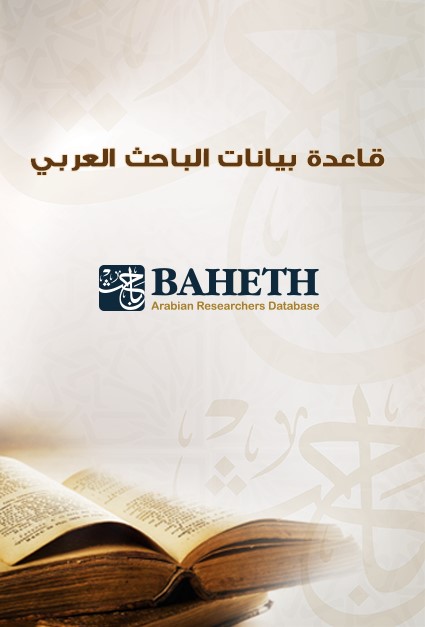
“BAHETH” in Architecture, Engineering, and Technology, is a peer-reviewed journal that publishes original academic research in the fields of Architecture, Engineering, and Technology. The journal welcomes research in the Arabic Language with an English Abstract. Papers submitted to this journal in Arabic must be presented in the English Language in the conference.
Find out more about BAHETH International Journal here.
IEREK has an unyielding policy regarding plagiarism. We believe that copying/taking the ideas and work of other Authors without permission and credit is fraudulent. The Reviewing committee and IEREK employees have the authority to reject a paper during its reviewing process, based on the paper being subjected to either minor or major plagiarism.
Authors must refer to, and abide by, the following instructions in submitting their abstracts/ papers:
This is not a prerequisite for presenting your work at the conference. Meaning, you can present your submitted abstract without intending to publish your work.
This process can only be initiated after payment completion and confirmation:
Registration
To help the organizers plan for inter-disciplinary dialogue, participants are requested to choose from the conference themes/ Topics upon registration.
They must also refer to, and abide by, the following instructions in registering and/ or submitting their contributions:
NOTE: If you are contributing as an Author of a submitted abstract (for publishing consideration and/or presentation), and regardless of attendance, the fee for the registration is the same. See and Conference Fees for more information.
Types of Participation
1. Attend/ Present in-person or Online and Publish in indexed Conference proceedings
The conference offers a Physical attendance option for your convenience. That said, participants will have a chance to present their abstract/research, on campus, and have their work considered for publication in the ASTI Series by Springer as part of the conference proceedings.
See Author Instructions and Conference Fees for more information.
2. Registration to publish in the proceedings without presenting/ attending
If your full paper is accepted, it may be published in the conference proceedings book in the Advances in Science, Technology & Innovation Book Series by Springer (indexed in Scopus) even if you are not attending the conference. In this case, the accepted work will not be included in the final conference program. See Author Instructions and Publishing Opportunities for more information.
3. Non-presenting participant
Non-presenting participants may also wish to attend the conference as Audience Members or Co-authors contributing to an already submitted abstract/ paper. See Conference Fees for more information.
Notes to consider:
* Attendance online and in-person are possible upon confirmation with the conference secretariat/ coordinator at [email protected] and following Conference Fees covered.
* The participation fee is uninform for all options presented above.
* For participants wishing to attend in-person, a visa invitation letter will be provided upon request, for which case a copy of your passport will be required. The invitation letter can only be provided after acceptance and full payment.
* Before planning your trip, be sure to check travel restrictions to the conference’s hosting country. Visit travel information and restrictions, and send in your questions if you have any to the conference coordinator at the email [email protected]




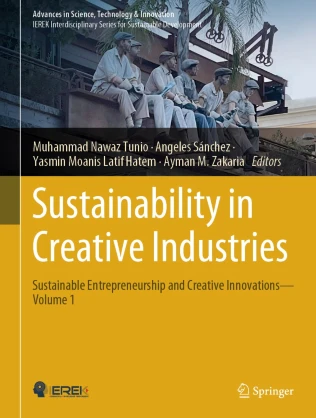
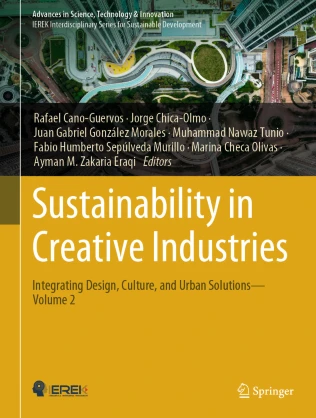
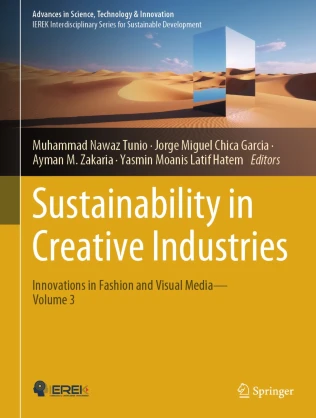
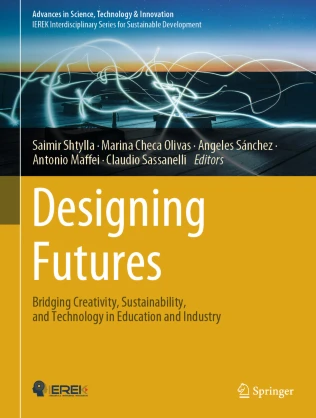
*IMPORTANT: Please note that minor changes could take place and the program be updated accordingly. All participants should regularly check the program until the event launch.
*Recorded videos cannot be played during the conference without prior need/ notice by emailing the conference coordinators/ organizers. All participants (authors) must share their screens and present their work in real-time. Alternatively, a substitute/ co-author may present on the participant's behalf after sending their information to the conference coordinators.
*All authors joining the online platform should insert their IEREK website-registered first and last names. Example: Raneem Adel
- For participants who need Entry Visas to the country where the conference will be held, IEREK will issue the corresponding invitation letter for accepted applicants to facilitate visa issuance.
- Please notice that we will endeavor to assist you in obtaining a visa but the responsibility is yours and the decision rests solely with the appropriate Embassy.
Invitation Letter Issuance Process
1- In case the participant is an author who has submitted a research paper to the conference, it must get accepted by the Scientific Committee
2- Required participation fees must be paid
3- The participant should send the following information to the conference's official email:
* A clear copy of the passport
* Passport number
* Full name as written in your passport.
* Date of Issuing and Expiration
* Date of Birth
* Email address of the nearest Embassy/Consulate to you
* Mobile Number including country code
4- The conference coordinator will issue the needful invitation letter and send a copy to the participant's email, in addition to another one to the corresponding email address of the embassy/consulate
5- The participant should print out the invitation letter along with all other required documents by the embassy/consulate and apply for VISA

ORCID, which stands for Open Researcher and Contributor ID, is a global, not-for-profit organization that aims to provide unique identifiers for authors, researchers, and scholars. ORCiD effectively eliminates duplication and errors regarding author names, affiliations, previous works, and all related academic data.
IEREK is a proud member of ORCiD, and we contribute directly to their initiative of clear and identifiable markers for researchers and scholars. As the first Egyptian partner to ORCiD in the organization’s history, we strongly believe that by utilizing ORCiD’s database and verification services, we become one step closer to achieving an accurate, and identifiable academic landscape.
We encourage our authors to input their ORCiD ID when registering for one of our conferences, submitting an abstract, or a full paper. By doing so, you directly link your research to your identity and affiliation and can showcase your various academic efforts all in one place. By Registering your ORCiD ID, you also increase your works’ visibility and provide easy access to your entire library of research and academic activity.
Click here to learn more about ORCiD, and here to register your ORCiD ID for free.
Attending a conference dramatically enhances both your professional and personal development. They help you sharpen the saw, meet and converse with industry experts, expand your resources and grow your professional network. IEREK Conference will help you:
1. Open Discussions: We bring together leading academic scientists, from different universities and countries, to exchange and share their experiences and research results.
2. Internationally Accredited Certificate: The participants are granted internationally recognized certificates acknowledged by IEREK, the University, and Partnering Organizations.
3. Publication: Selected high-quality manuscripts will be published, after peer review, in the Advances in Science, Technology & Innovation (ASTI) book series by Springer or by IEREK Press Journals, both of which are indexed in world-renowned databases.
4. Research Technologies: Conferences can expand your resources by providing a great opportunity to promote gathered information on new technologies related to your research.
5. Networking: You can engage with industry experts to discuss with them the very latest research projects they could be working on and increase your chances of collaboration in future projects.
6. Academic Reputation: Attending many conferences will make you a known figure in academic circles and an active member of the academic community.
7. Conference Abstracts Material: Delegates will receive the conference Abstracts book in both hardcover and digital format on a CD. Shipping fees may apply.
Delegates in any event who cancel their registration due to special circumstances will receive refunds according to the following:
| Cancellation Policy | Up to 60 days before the event | 59 days before the event |
| Penalty | 20% | 100% |
A refund is not possible if
- An acceptance letter has been issued (Authors only)
- The proceedings of the event have been published (Authors only)
- A submitted manuscript is rejected by the editorial board after going through peer review.






















Dr. Astrid Kusumowidagdo
Vice Rector of Entrepreneurship, Academic and Research, Universitas Ciputra, Indonesia.

Enrico
Lecturer of fashion product design, Universitas Ciputra, Indonesia

Rahayu Budhi Handayani
Lecturer of fashion product design, Universitas Ciputra, Indonesia
Conference Coordinator
[email protected]
(+20) 3 5763827 | (+20) 3 5763828
Whatsapp: (+20)1000028021
Subscribe to our newsletter
Join IEREK community